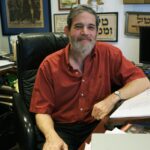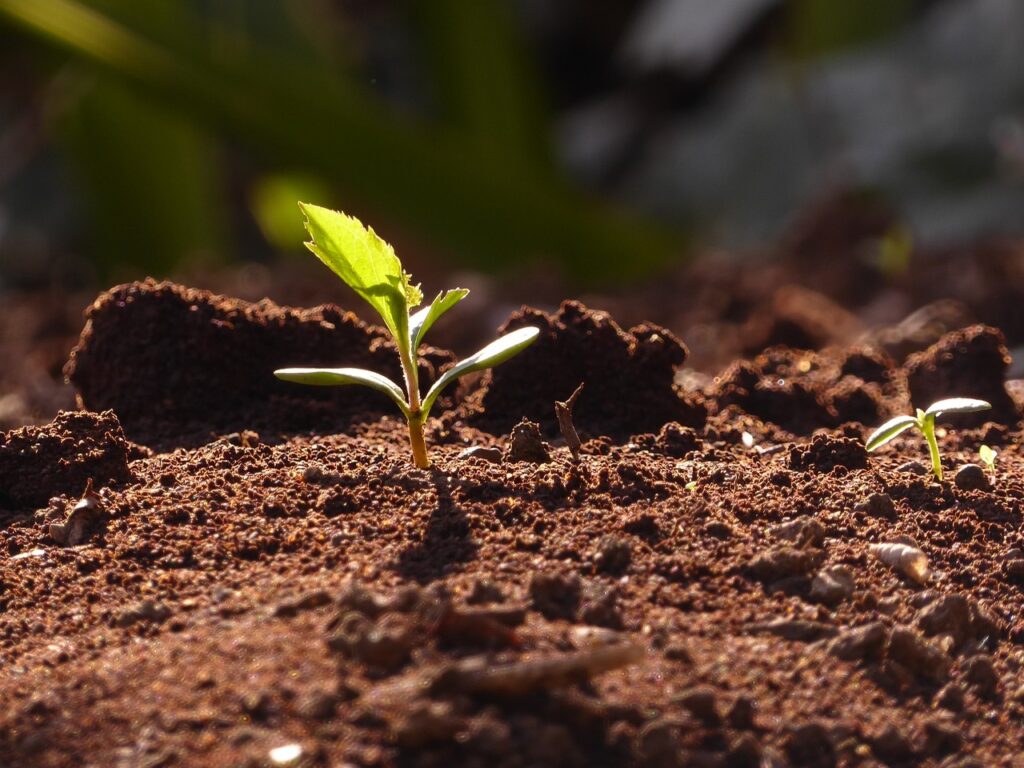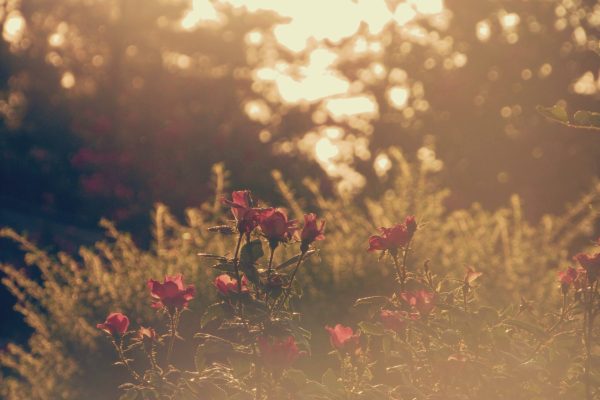The process of teshuvah is a challenging one. It is easy to be skeptical of our ability to really change, since each year at the High Holidays, for most of us, we face the same issues that we faced last year and the year before. Nevertheless, the tradition is optimistic about the possibility of teshuvah. Hasidism in particular is optimistic that we can really change. I want to share with you a teaching of the Sefat Emet, a Hasidic master of the late 19th century.
This year on the first Shabbat in September we read the Torah portion of Ki Tavo, which begins: “When you enter the land…you shall take some of every first fruit of the soil, which you harvest…put it in a basket…and bring it to the priest and say: I acknowledge this day (ha-yom) before God that I have entered the land sworn to our ancestors.” (Dt. 26:1-3). This is the ritual of bikkurim/the first fruits: the best of the first fruit was to be offered to God just as first-born children and first-born animals had a special status in ancient Israel.
The midrash Tankhuma comments on this and says Moses saw that, in the future, the people of Israel would live in exile, and the first fruits ritual would be abolished. Moses decided to institute the three daily prayer services to take the place of the first fruits ritual.
The Sefat Emet comments that prayer is also giving the first fruits, the best, to God. He continues by emphasizing that the farmer bringing the first fruits says, “I acknowledge hayom, this day.” He says this is essential because firstness is not a once-a-year event. Firstness happens each and every day. For the Sefat Emet, the world is recreated anew each day as we say in the morning liturgy – ha-mekhadesh be-khol yom ma’asei bereishit – that God renews the work of creation every single day. We too are part of that re-creation. The Sefat Emet describes humans as a beriah hadasha—a new being. We are not the same old same old person we were yesterday.
One problem is that that is not how we experience the world or ourselves. For us, the words of Ecclesiastes seem true: There is nothing new under the sun. Instead, the Sefat Emet believes that each of us can connect to the spark of light that is within us and reveal the deeper reality of the world, that holiness and light are waiting to be revealed both by changing our perception and by our doing deeds of caring and compassion. This will lead to being fully present to this moment and the potential to be a beriah hadasha: a new person. That is why it is written hayom – “this day” – meaning, to find the aspect of “this day” which consists of the uncovering and of revealing the light.
This notion of daily renewal can be a powerful encouragement to engage in the process of teshuvah, of change, despite our previous lack of success.
I want to add an additional element to the teaching of the Sefat Emet by returning to the ritual of the first fruits. The biblical ritual called upon the farmers to pay attention to the first fruits as particularly special. Cultivating a practice around noticing the first or beginning of things is in itself a worthwhile spiritual endeavor. Moses acknowledges this, which is why he thinks that abolishing the first fruit ritual is a problem. After all, if you think about it, the destruction of the Temple would lead to the abolishment of all the sacrifices. However, when Moses instituted the daily prayers as a substitute, it was only for the first fruits. I think this reflects the understanding that recognizing the ongoing renewal in life is essential.
We may not believe that we are a completely new creation each day, but it is true that we are not the same person that we were yesterday. Our body is always in process; cells die and new cells are born. And each day also adds to the storehouse of the experience of our lives.
At the burning bush, Moses asks God what is Your name, so that I may say who has sent me to free the Israelites from Egypt. God answers ehyeh asher ehyeh (I will be what I will be). God is a God of change, meaning God cannot be frozen in one image or understanding. It is the God that changes who will free the Israelites from slavery. Perhaps there is no greater experience of change than from being enslaved to becoming free.
One way we as humans are created in the image of God is that we always have the possibility to change, the potential to move from stasis to becoming.
It is also not a coincidence that when the farmer brings the first fruit to the priest, he recites the following: “My father was a wandering Aramean who went down to Egypt…The Egyptians dealt harshly with us and oppressed us…God freed us from Egypt with a mighty hand and an outstretched arm…God brought us to this place…a land flowing with milk and honey…Wherefore I now bring the first fruits of the soil…And you shall rejoice (samakhata) together with the Levite and the stranger in your midst.”
These verses are familiar from the traditional Passover Haggadah, which uses them to tell the story of the slavery and Exodus from Egypt. It is also every person’s story. We all go forth from the place of our birth seeking a Promised Land. Every person will encounter mitzrayim, places of narrow choices and oppressive circumstances. Yet we know that leaving Egypt behind happened once before and can happen again. Instead of a place of narrowness, we can create a society where milk and honey flow to all. In such a society you will find simkha — the joy that comes from sharing your bounty with everyone, including the stranger in your midst.
How can this vision happen both for us as individuals and for our world, or to return to our specific topic: how can we successfully engage in teshuvah, in change?
Teshuvah must begin with seeing and admitting the ways that we have failed ourselves and failed others. While this is an essential first step, I want to suggest that the next step in the teshuvah process is bringing our first fruits. We must acknowledge the harvest from the fruit of our efforts in the past year: the moments when we extended an outstretched arm to help someone in need. Each of us has our first fruits, the best of what we have done and the best of who we are. As Rebbe Nahman of Braslev taught, “if you believe that you can mess up (which is something we all firmly believe in) then you must equally believe that you can affect tikkun/repair.” While we each have personal qualities that we struggle with, we also each have character strengths. And so our practice should be bringing those strengths together with the understanding that life is all about change can help us not feel despairing at the challenge of teshuvah. This should be part of our practice of teshuvah, of change. Instead, we feel in touch with the hope and promise carried on the wings of the New Year. We can become a beriah hadasha — a new version of ourselves in this New Year. Shanah Tovah, a good year to you all.
 Rabbi Michael Strassfeld was one of the editors of the Jewish Catalog (1973), a guide to do-it-yourself Judaism that sold over 300,000 copies. He authored The Jewish Holidays (1985), co-authored A Night of Questions: A Passover Haggadah (1999) with his wife Rabbi Joy Levitt, and authored A Book of Life: Embracing Judaism as a Spiritual Practice (2002). His newest book Judaism Disrupted: A Spiritual Manifesto for the 21st century published by Ben Yehuda Press has been published on the 50th anniversary of the Jewish Catalog. He is the rabbi emeritus of the SAJ (Society for the Advancement of Judaism).
Rabbi Michael Strassfeld was one of the editors of the Jewish Catalog (1973), a guide to do-it-yourself Judaism that sold over 300,000 copies. He authored The Jewish Holidays (1985), co-authored A Night of Questions: A Passover Haggadah (1999) with his wife Rabbi Joy Levitt, and authored A Book of Life: Embracing Judaism as a Spiritual Practice (2002). His newest book Judaism Disrupted: A Spiritual Manifesto for the 21st century published by Ben Yehuda Press has been published on the 50th anniversary of the Jewish Catalog. He is the rabbi emeritus of the SAJ (Society for the Advancement of Judaism).











3 Responses
Congratulations, Rabbi Strassfeld! This is a timely and well thought out, as well as accessible, insight into teshuvah. May I quote from it as I form my own sermons(with attribution, of course?
I attended one of the chavurot in the shul you guided on the Upper West Side, many, many years ago, when I was a cantorial student at JTS. That was my basis for what knowledgeable, spiritual davvening can look like.
Thank you for all your contributions to Jewish life through the years.
L’shanah tovah,
Yael
Feel free to quote anything from Ritualwell with attribution – so glad you enjoyed this teaching!
thank you so much – for the insight, teaching, and guide. Much to think about!